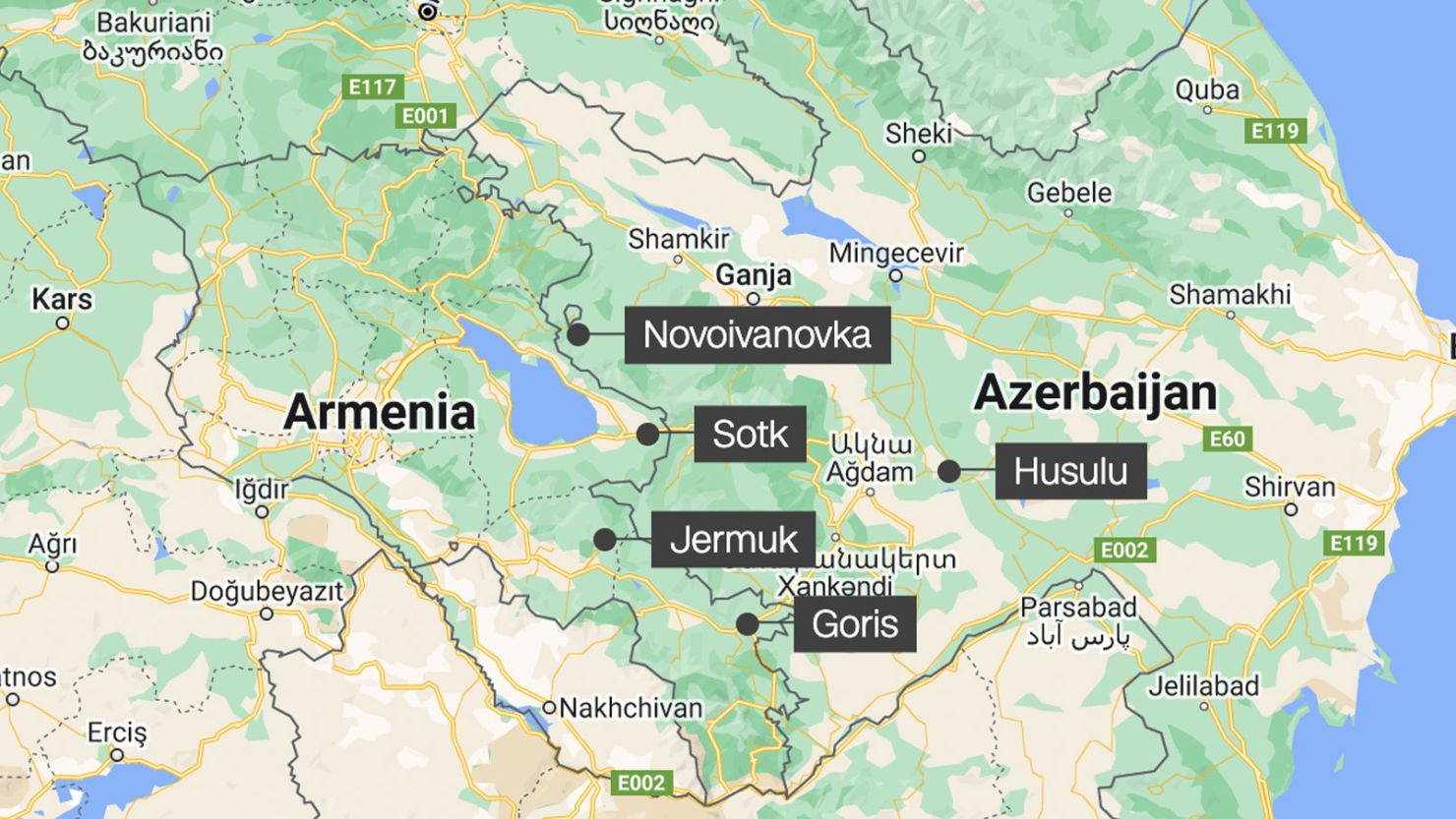Russia claimed it has brokered a ceasefire between Armenia and Azerbaijan after fighting erupted on the border between the two countries this week, bringing a decades-old conflict to the brink of reigniting.
“We call on the parties to refrain from further escalation of the situation, exercise restraint and strictly observe the ceasefire in accordance with the trilateral statements of the leaders of Russia, Azerbaijan and Armenia of November 9, 2020, January 11 and November 26, 2021,” a Russian foreign ministry statement said.
“We are in close contact with Baku and Yerevan. An appeal was received from the Armenian leadership to assist in resolving the situation … We expect that the agreement reached as a result of Russian mediation on a ceasefire from 9.00 am Moscow time on September 13 will be carried out in full,” it added.
The statement follows a call between Armenia’s Prime Minister Nikol Pashinyan and President Vladimir Putin earlier Tuesday. Local media in Azerbaijan also reported on the ceasefire but said it had already been broken.
On Tuesday morning, the Armenian Defense Ministry claimed Azerbaijan Armed Forces conducted artillery strikes toward Armenian border towns. The strike included drones and large-caliber firearms fired in the direction of Goris, Sotk, and Jermuk, according to the Armenian Defense Ministry.
The Azerbaijani Ministry of Defense responded with a statement acknowledging the strikes, but said the strikes are “small-scale” and “aim to ensure the security of Azerbaijan’s borders.”
On Monday, Azerbaijani Ministry of Defense accused Armenian forces of firing in small arms in the directions of the Novoivanovka settlement of Gadabay region and Husulu settlement of Lachin region near the border of the two countries. Armenia denied the allegations.
In 2020, the two countries clashed over the disputed Nagorno-Karabakh region, a landlocked area between Eastern Europe and Western Asia that is populated and was controlled by ethnic Armenians but located in Azerbaijani territory. Hostilities ended after Armenian-backed separatists agreed to relinquish control over territories in the restive region.
The unrest in the region is decades old, dating back to the collapse of the Soviet Union, when the region, backed by Armenia, declared independence from Azerbaijan. Azerbaijan has long claimed it will retake the territory, which is internationally recognized as Azerbaijani.
On Tuesday, Armenia called on Russia to implement a 1997 defense treaty that stipulates the countries will defend each other’s territorial integrity and sovereignty in the event of an attack by a foreign country.
“A decision was made to officially apply to the Russian Federation for the implementation of the provisions of the Treaty of Friendship, Cooperation and Mutual Assistance, to the Collective Security Treaty Organization and the UN Security Council regarding the aggression against the sovereign territory of the Republic of Armenia,” a statement from the Armenian Prime Minister’s office read.
The request came after a session with the Armenian Security Council and a call between Armenian Prime Minister Nikol Pashinyan and Russian President Vladimir Putin, according to a statement from Pashinyan’s office.
Russia previously deployed what it termed peacekeeping forces to the region after brokering a ceasefire agreement in early November 2020, ending an almost two-month conflict that killed at least 6,500 people, according to Reuters.
Pashinyan also spoke with US Secretary of State Antony Blinken Tuesday, asking for an “adequate reaction” from the international community in response to what Pashinyan referred to as “the aggression launched by Azerbaijan against the sovereign territory of Armenia,” his office said in a statement.
On Monday evening, Blinken called for the “immediate cessation of hostilities.”
“The United States is deeply concerned about reports of attacks along the Armenia-Azerbaijan border, including reported strikes against settlements and civilian infrastructure inside Armenia,” Blinken said in a statement. “As we have long made clear, there can be no military solution to the conflict. We urge an end to any military hostilities immediately.”
CNN’s Hannah Ritchie contributed reporting.





